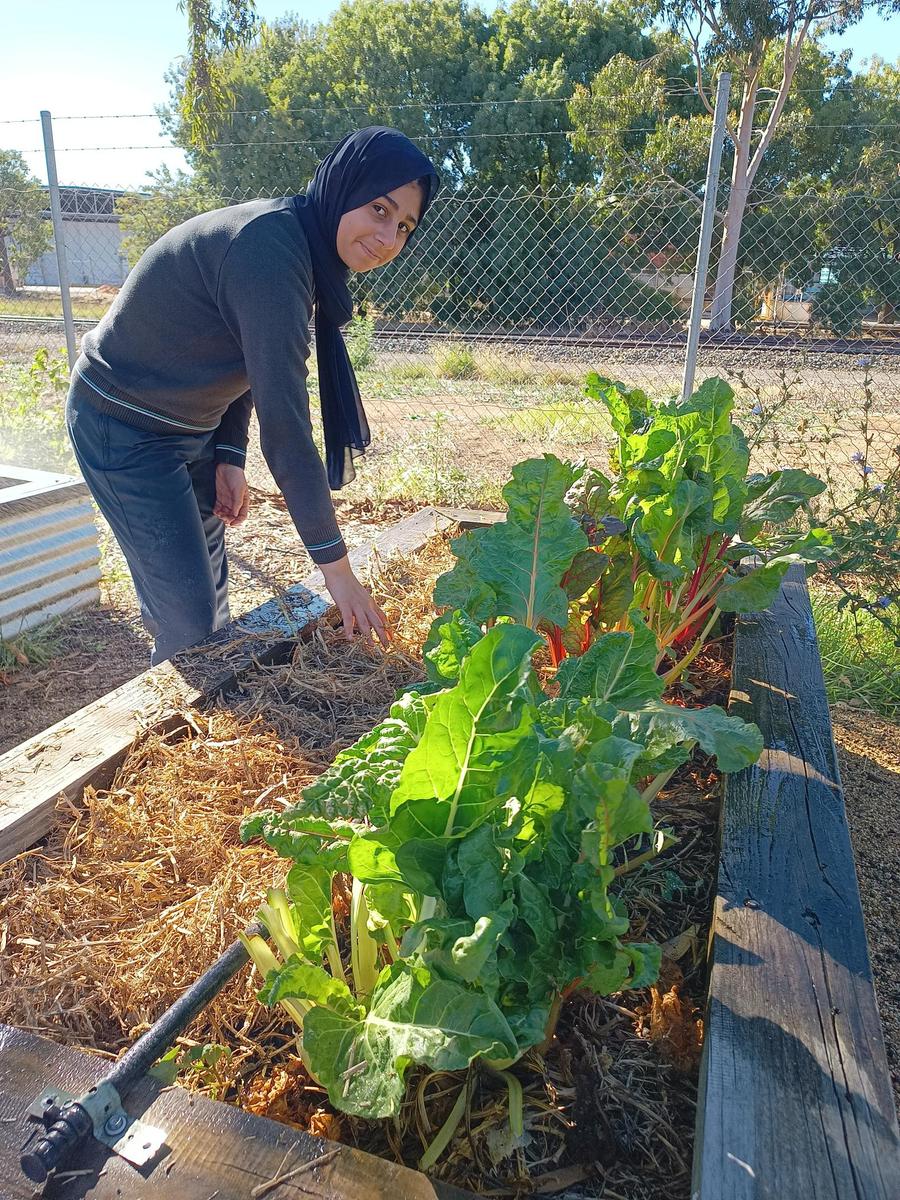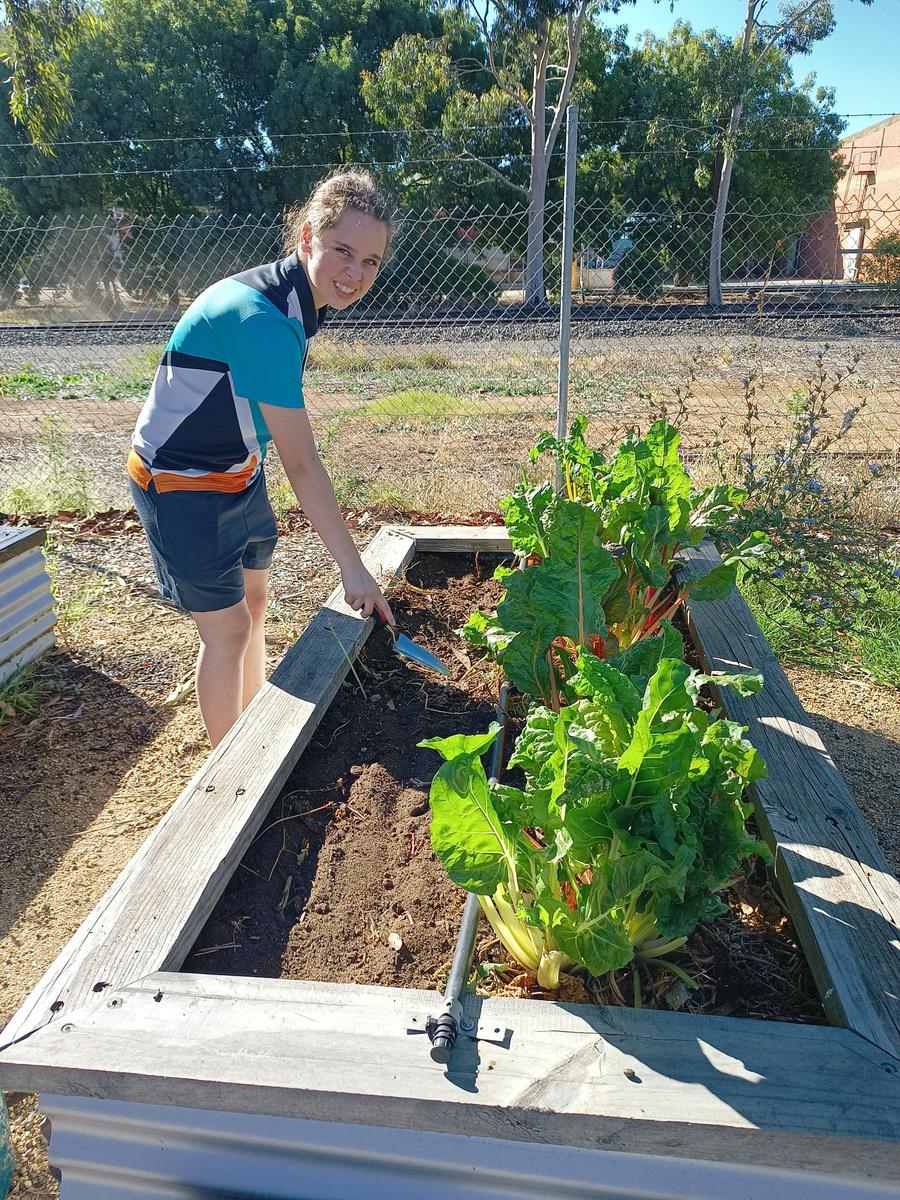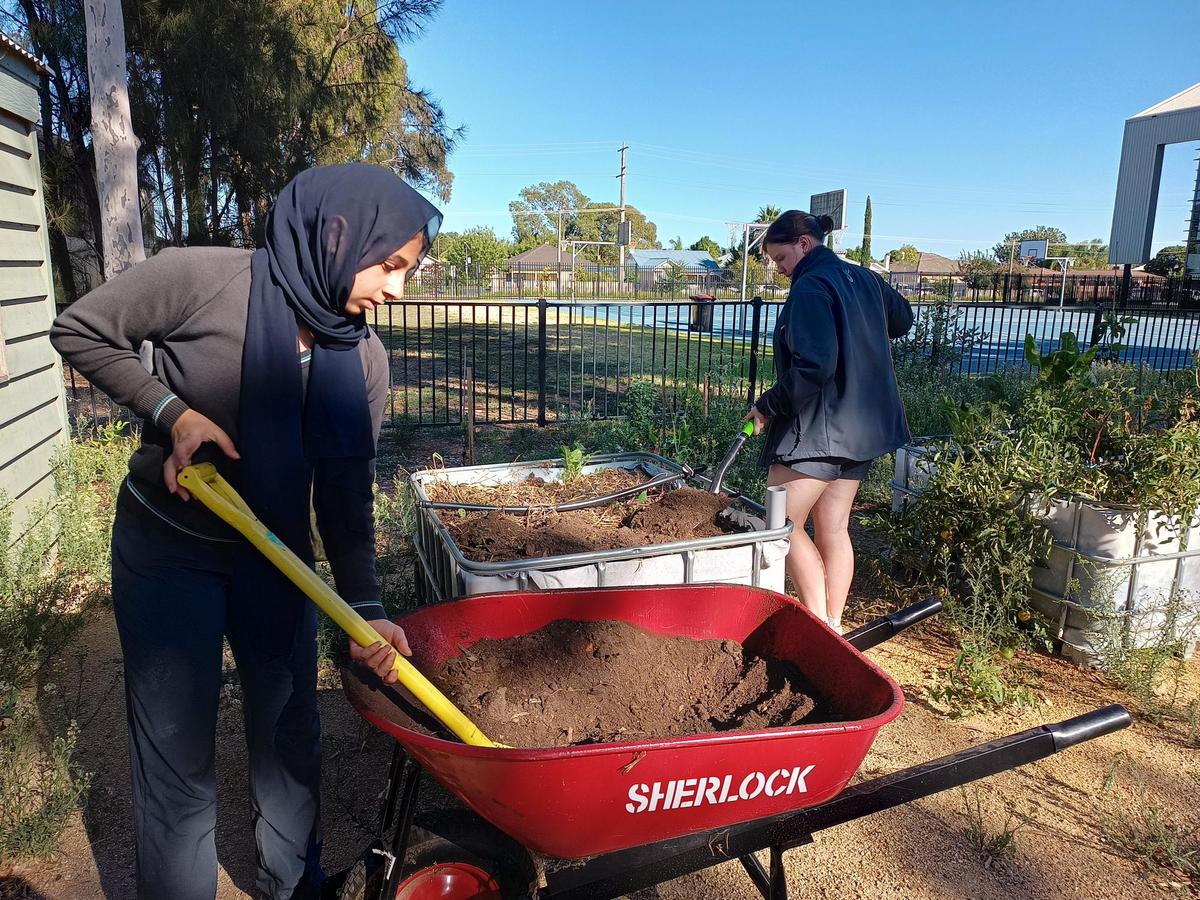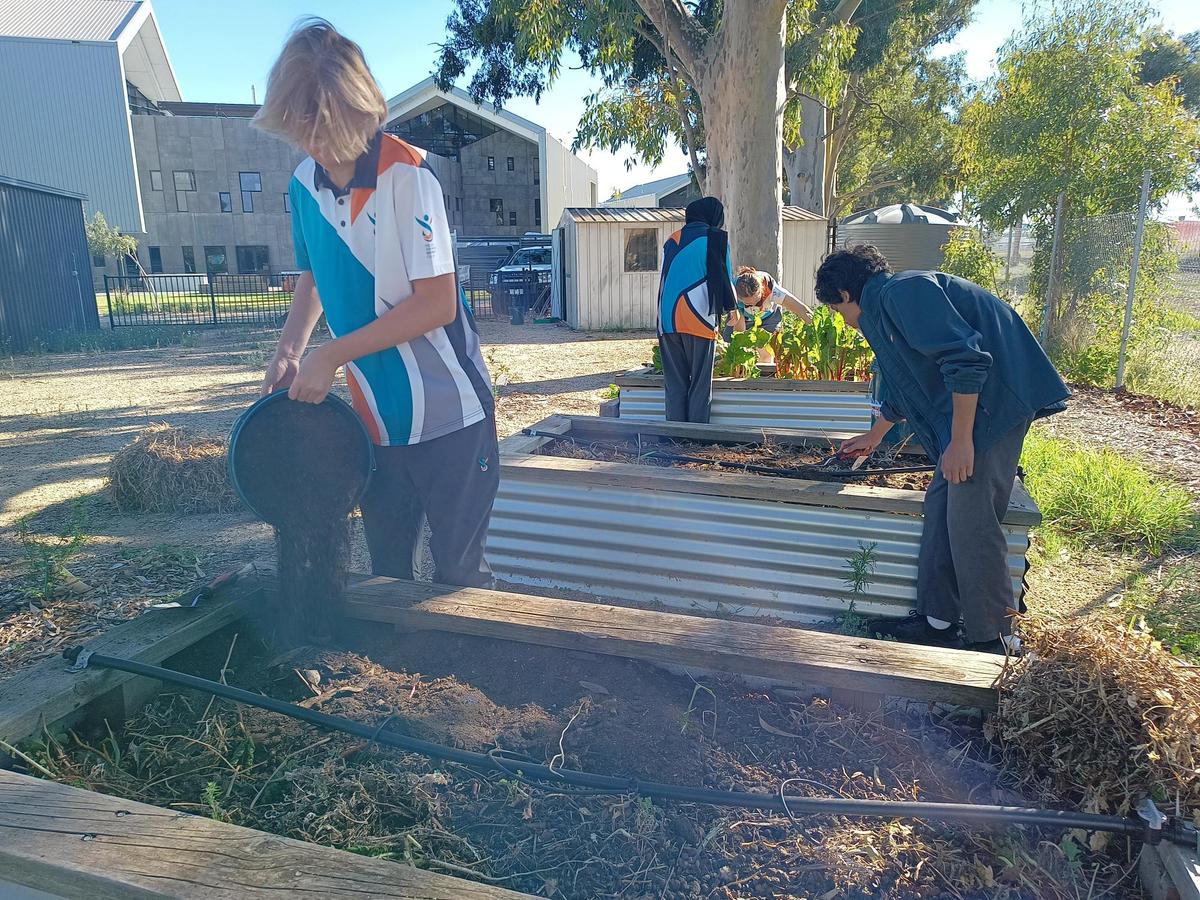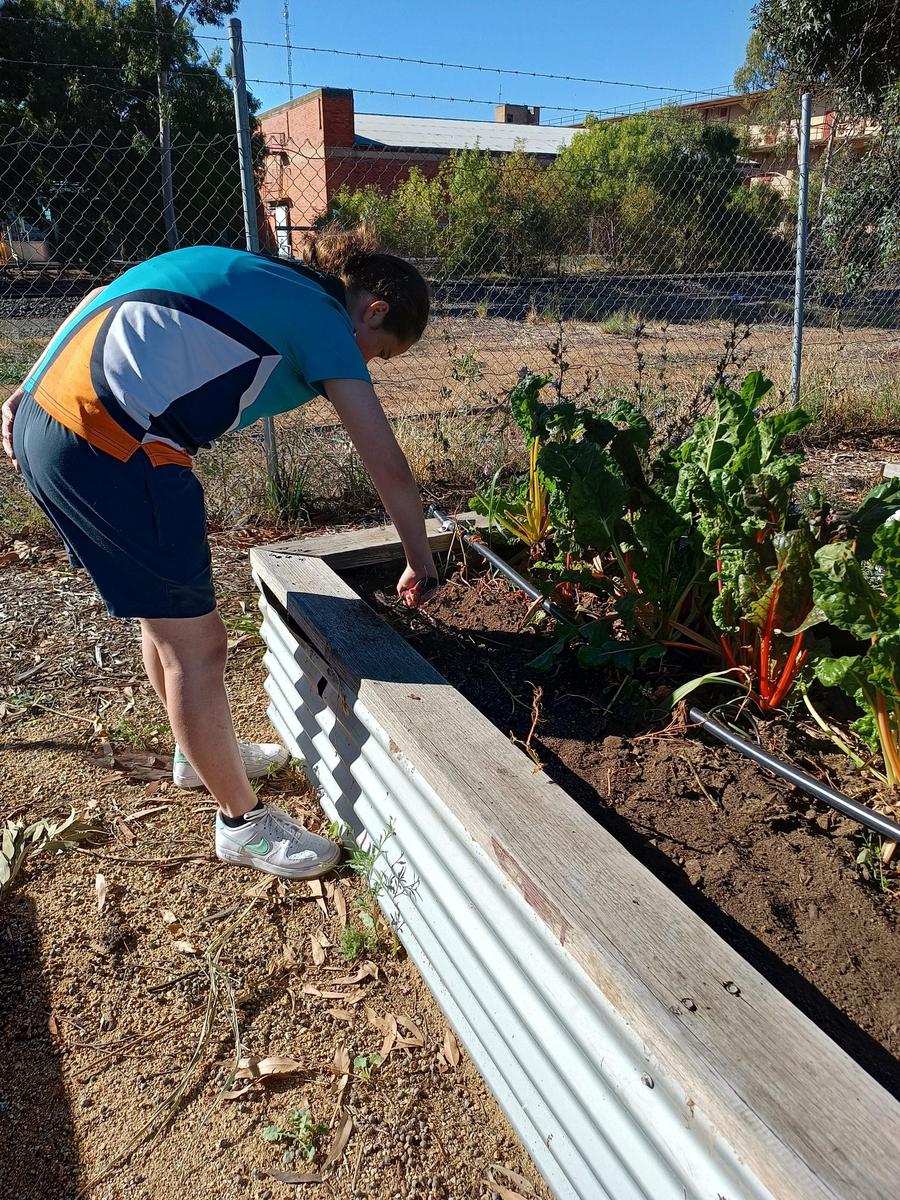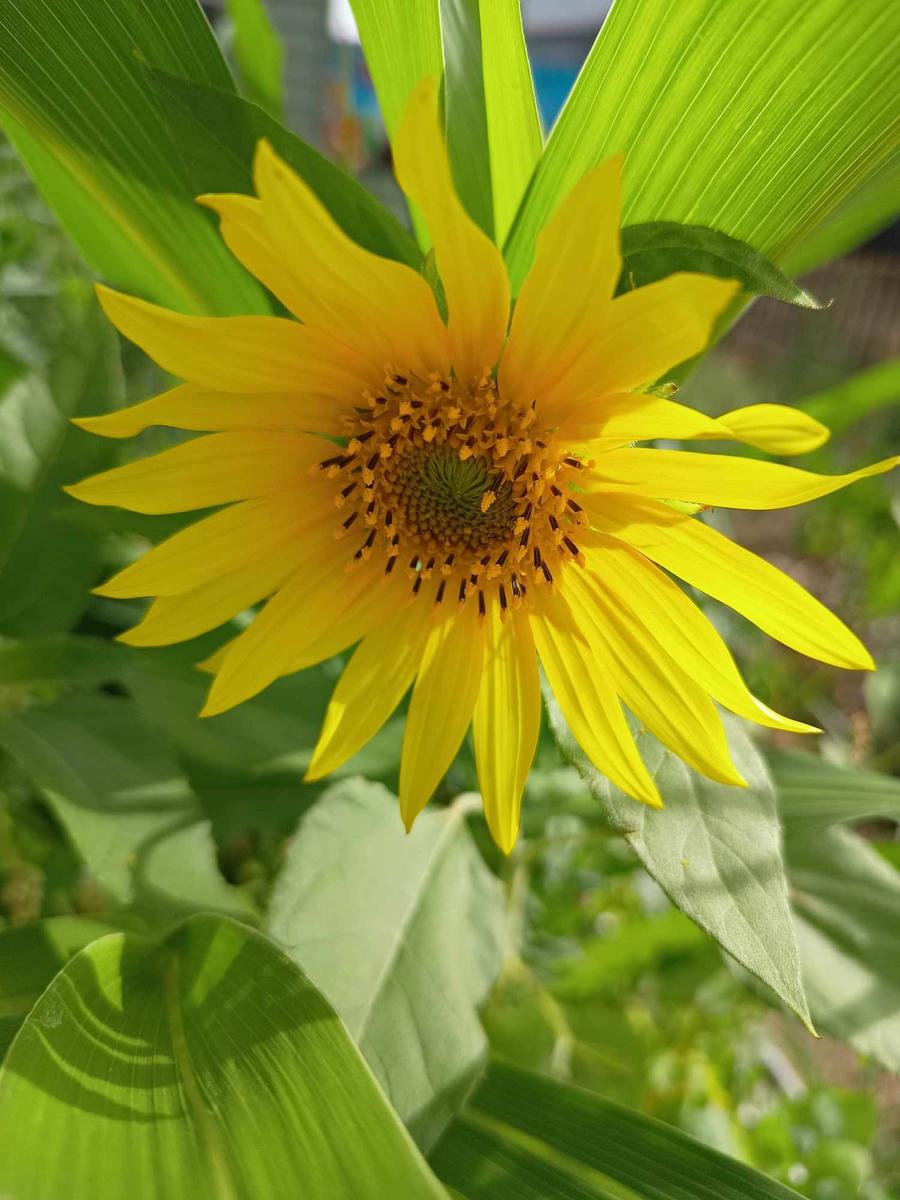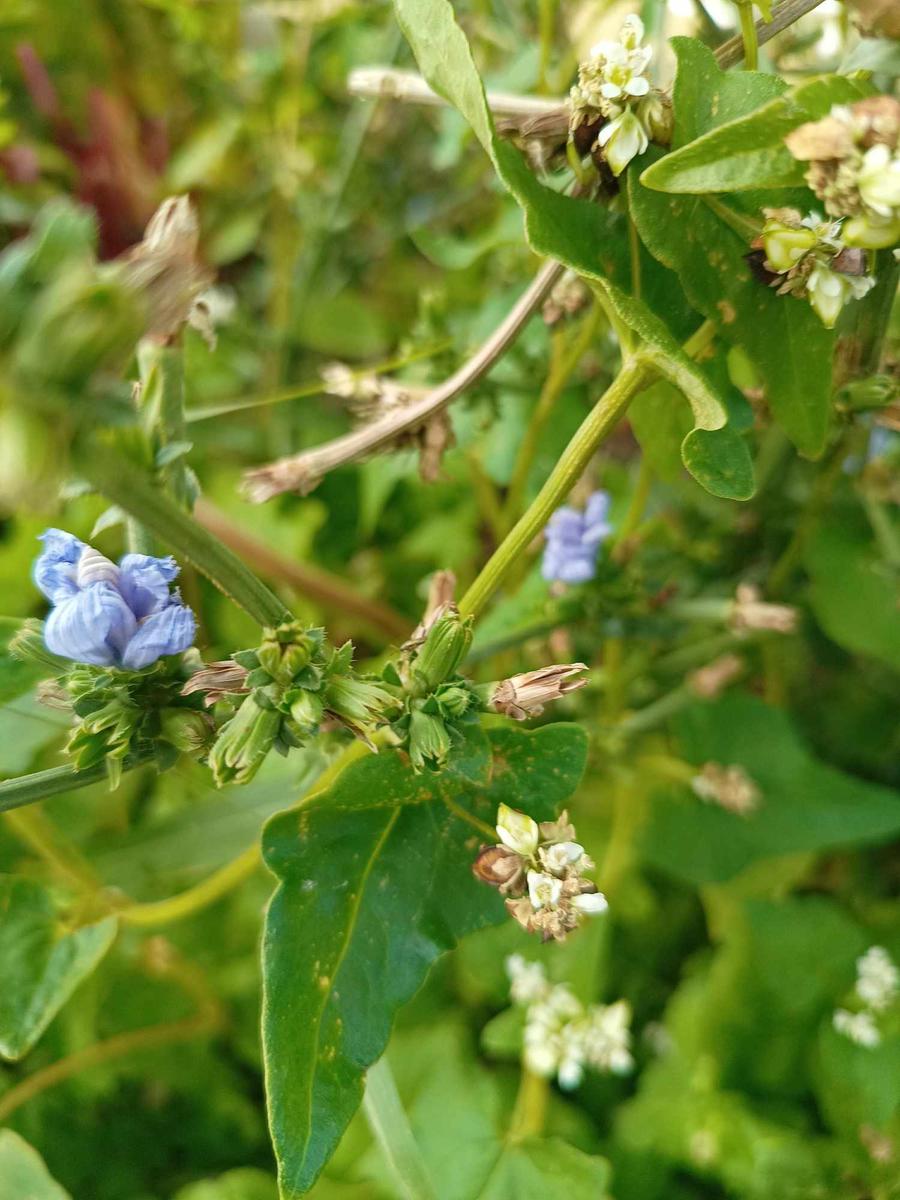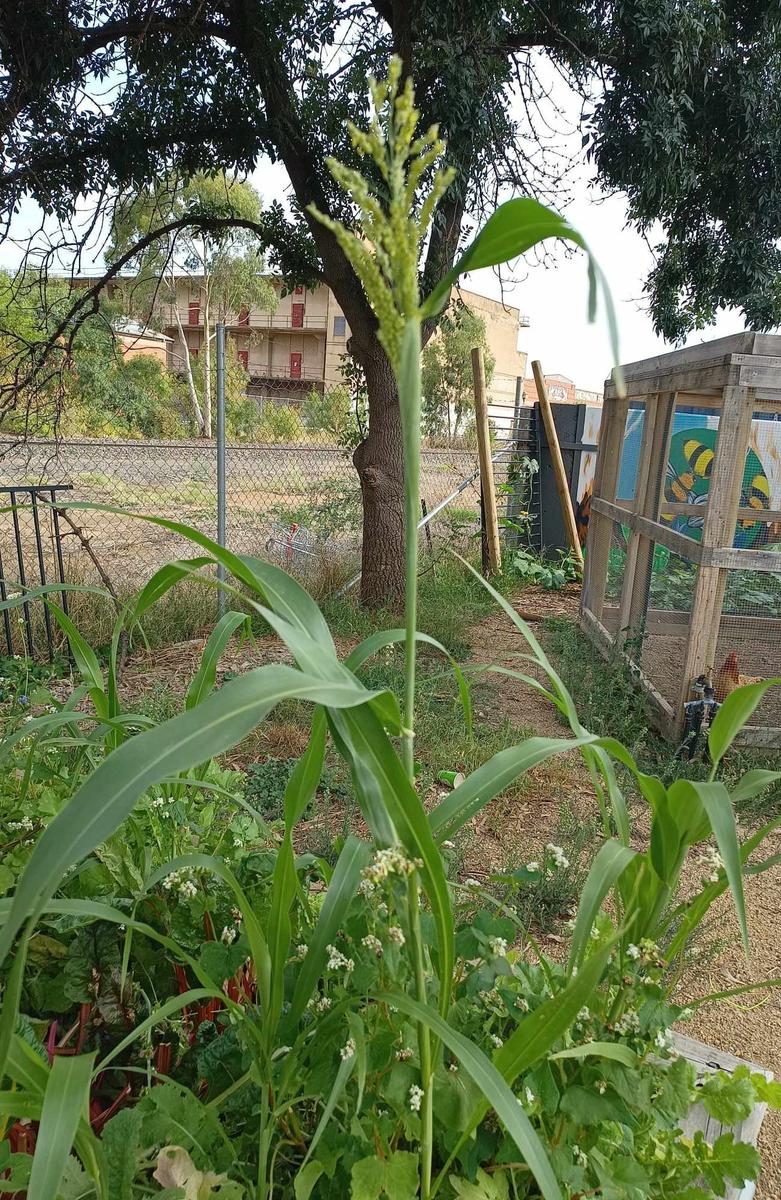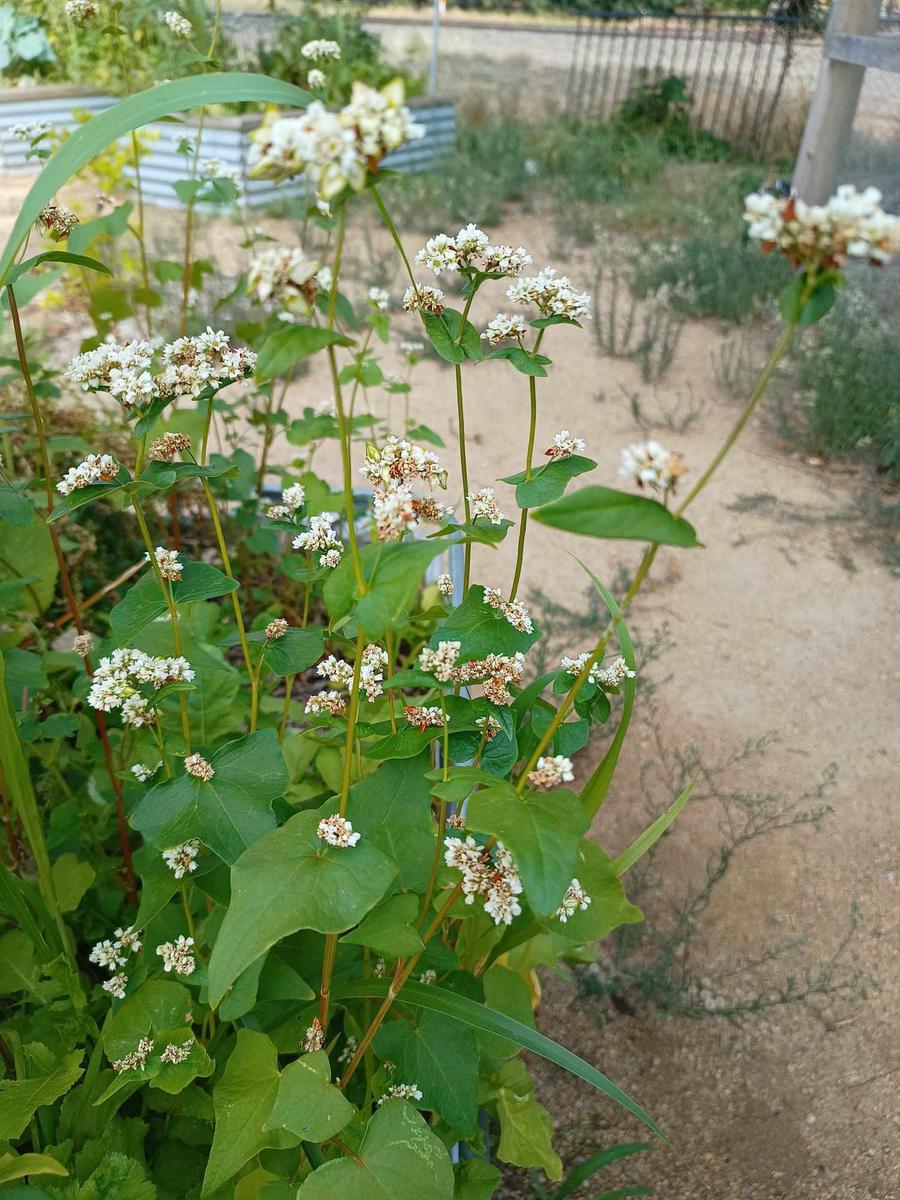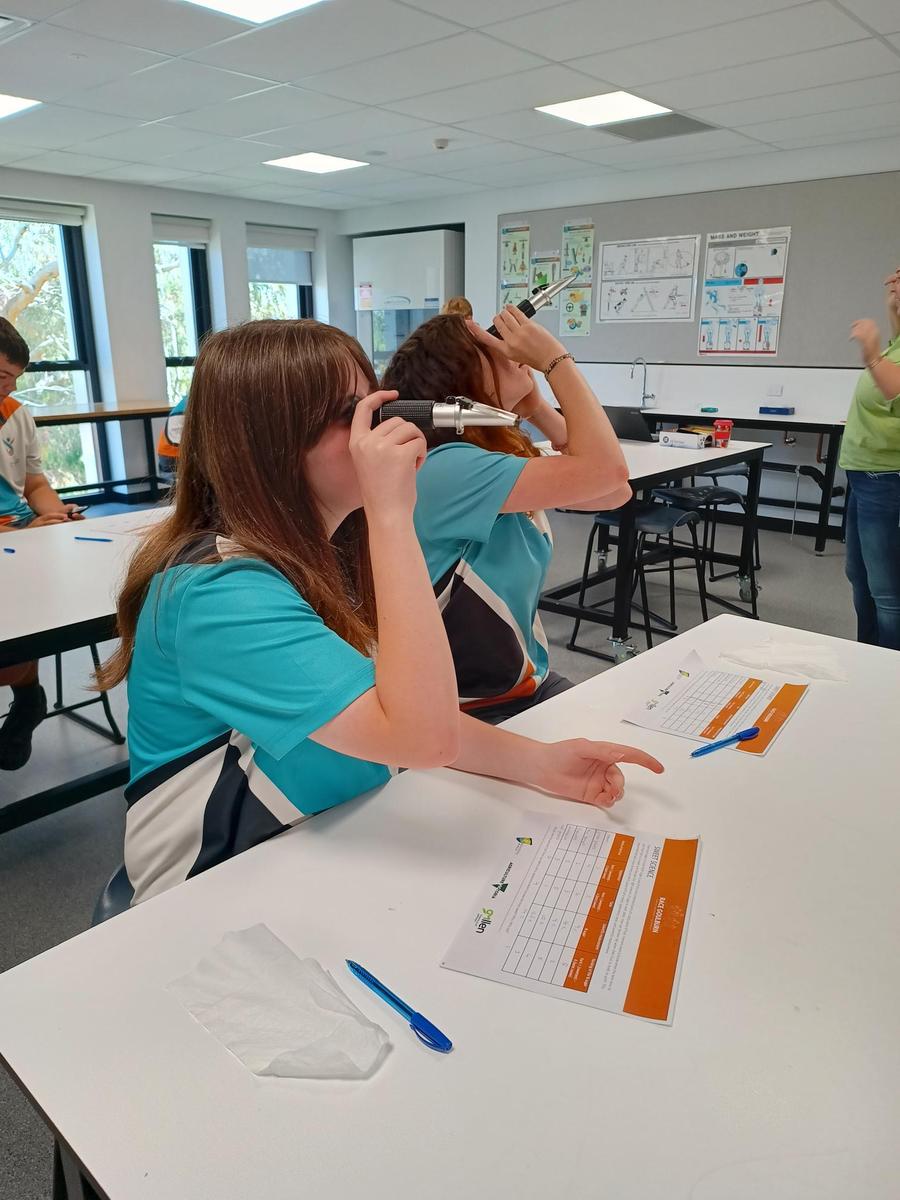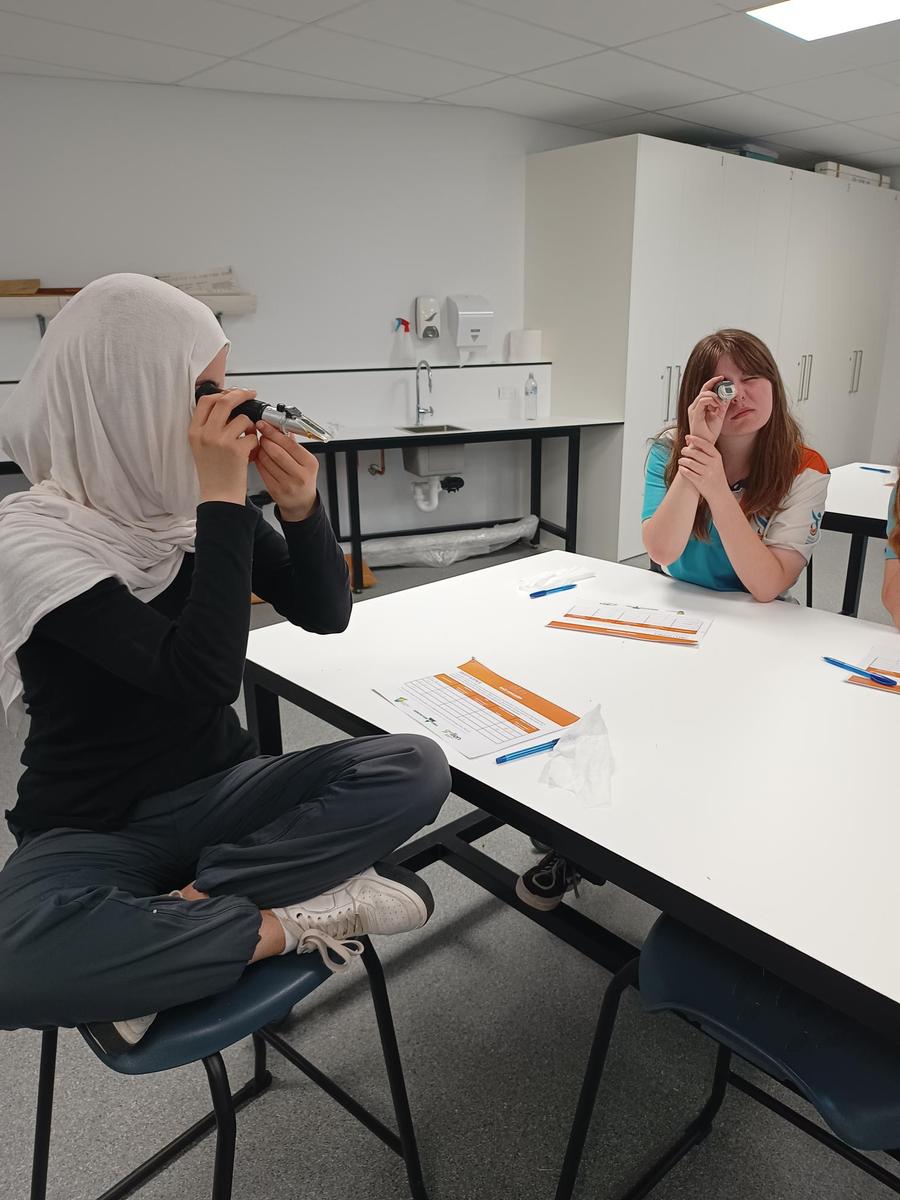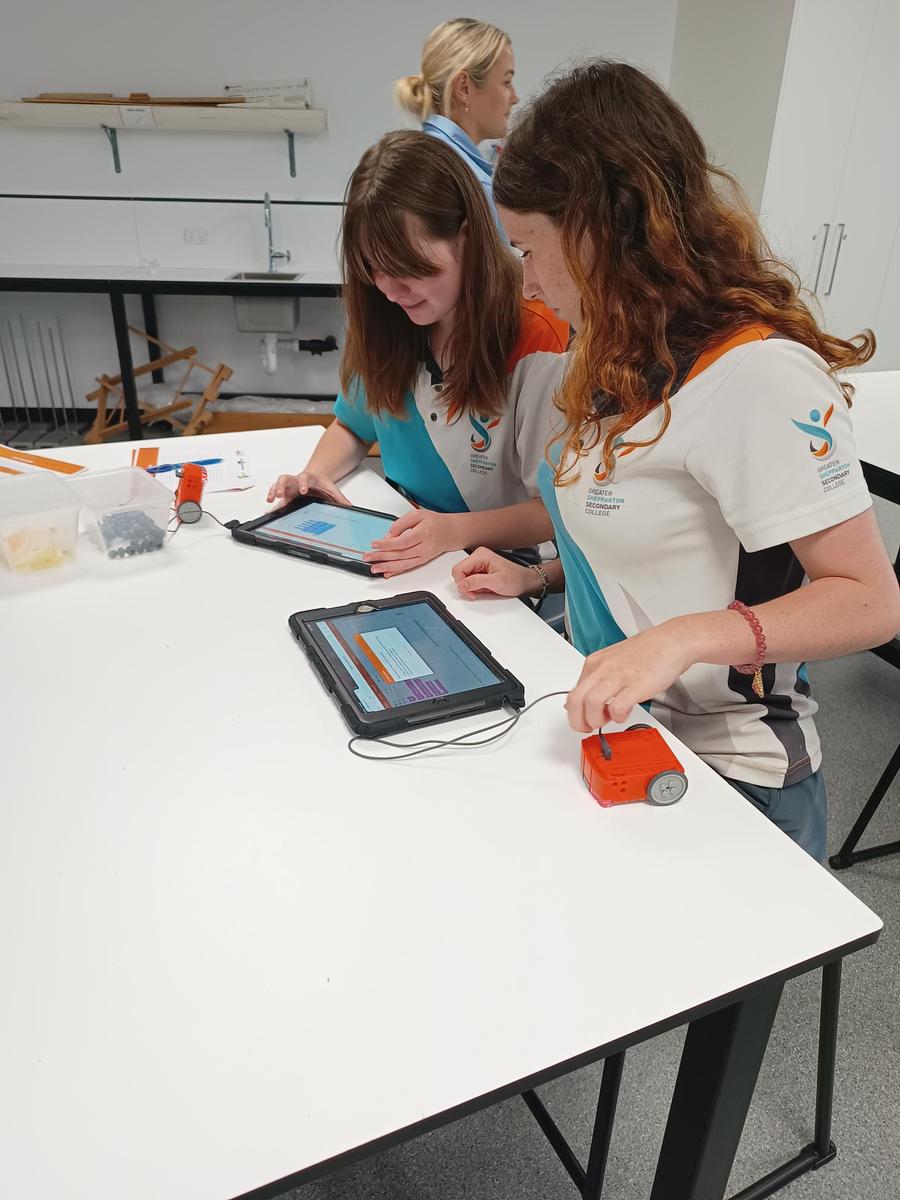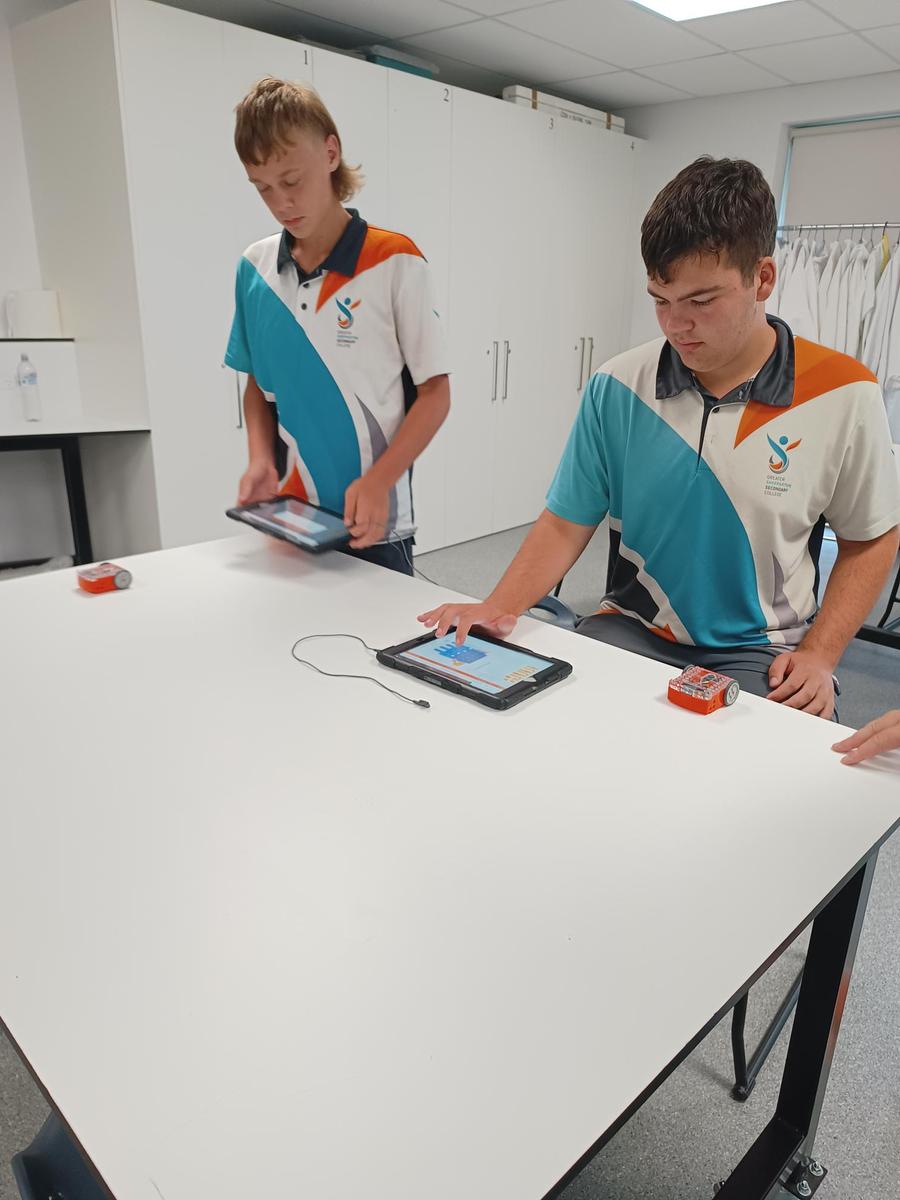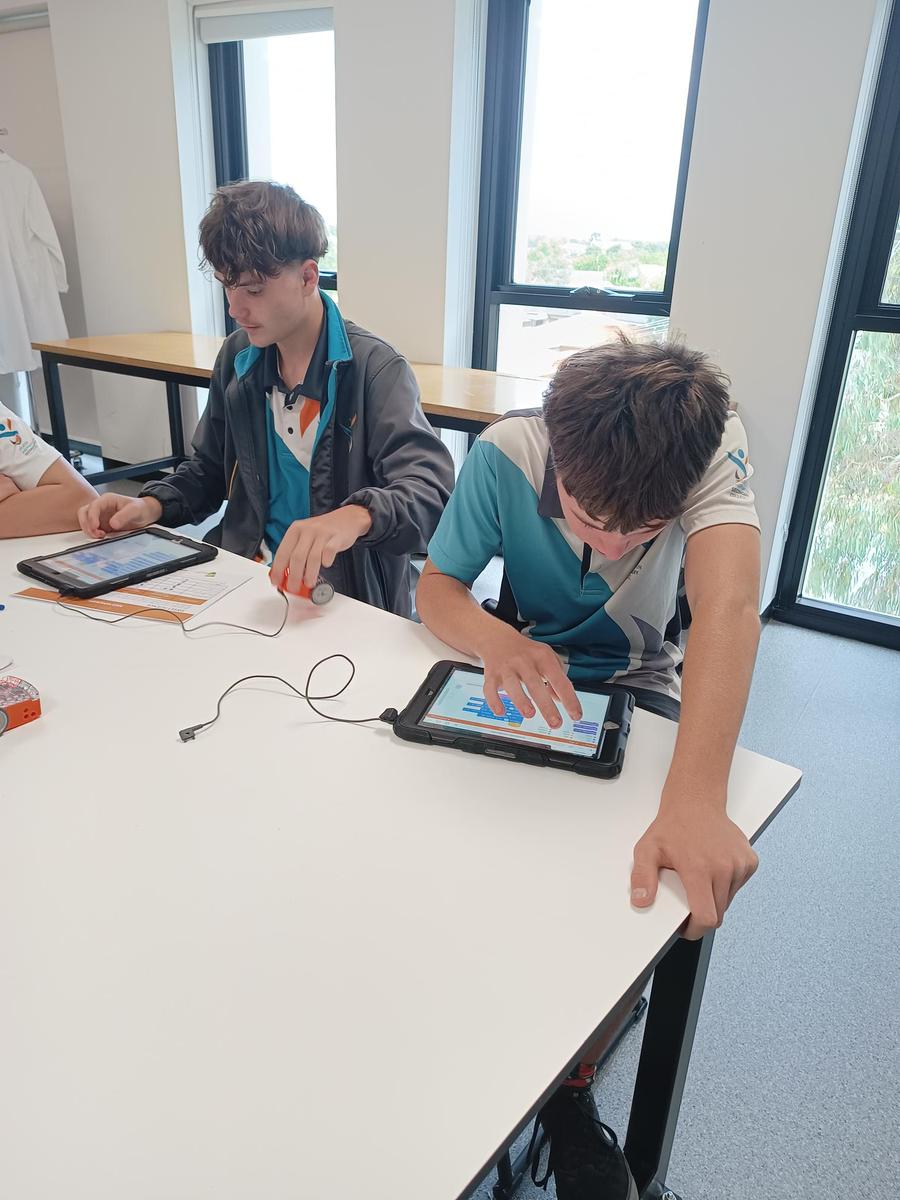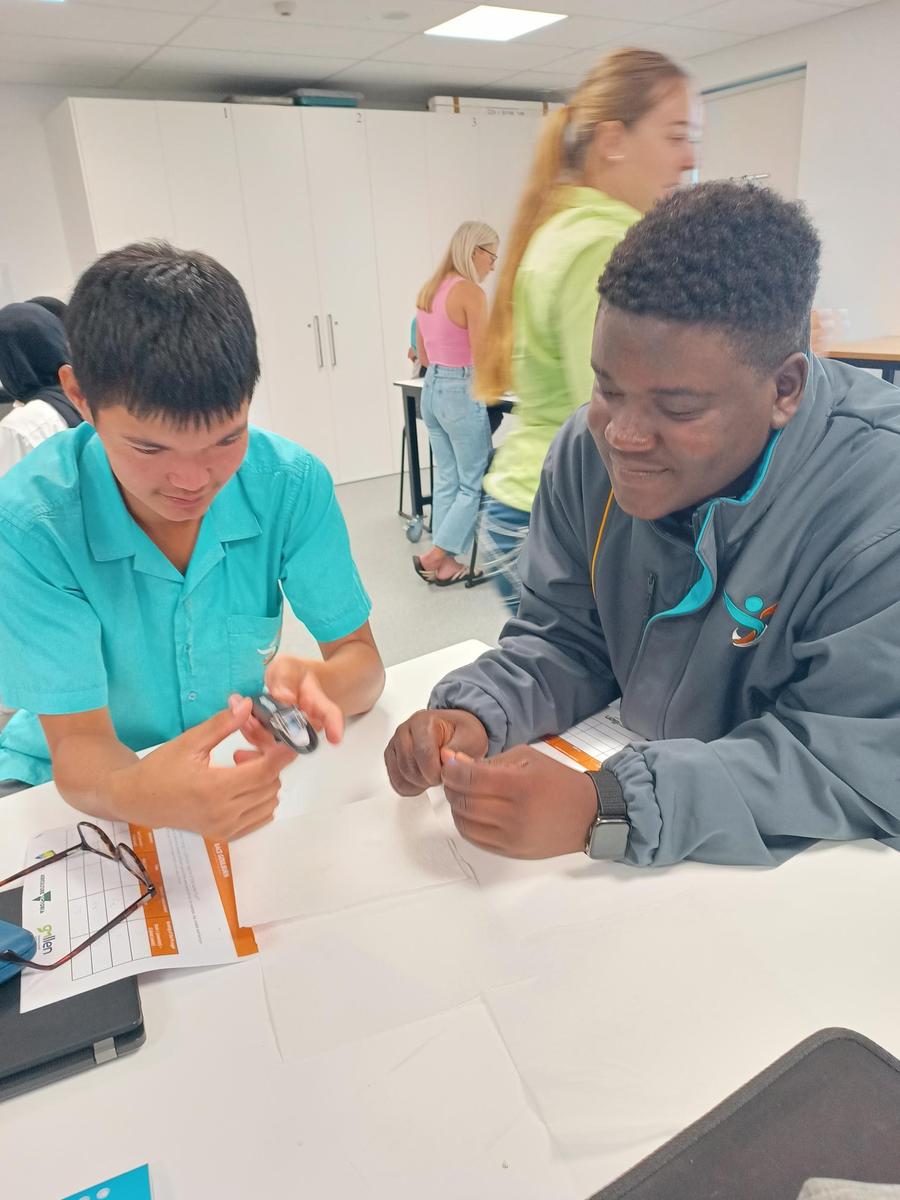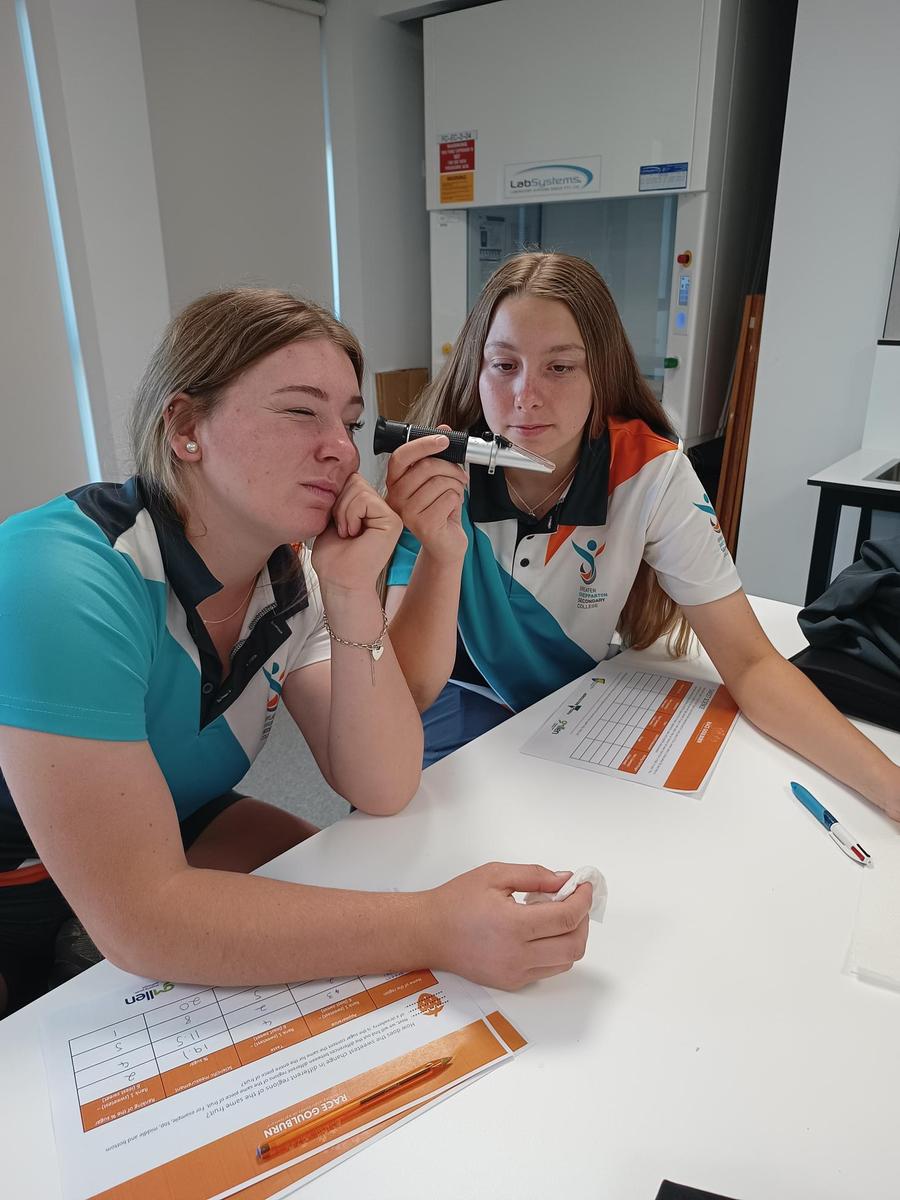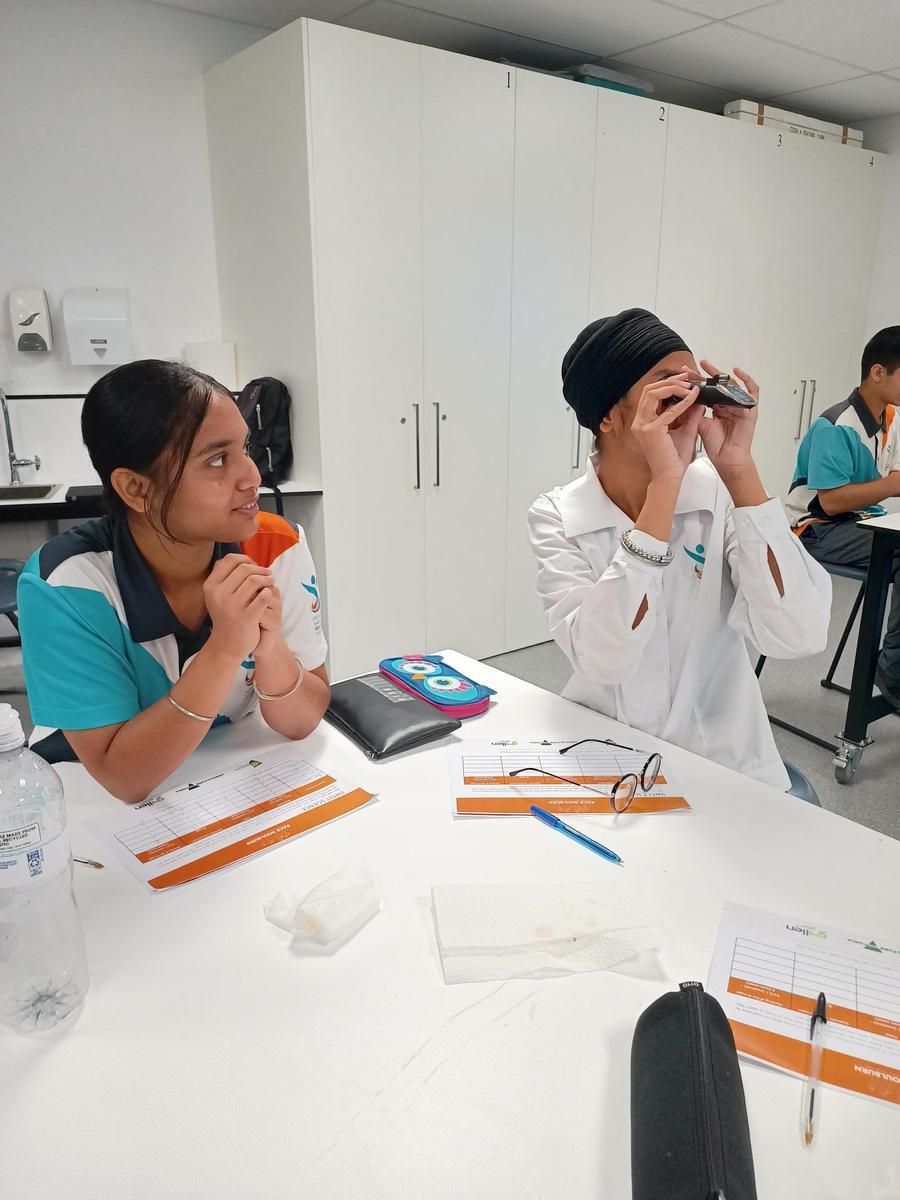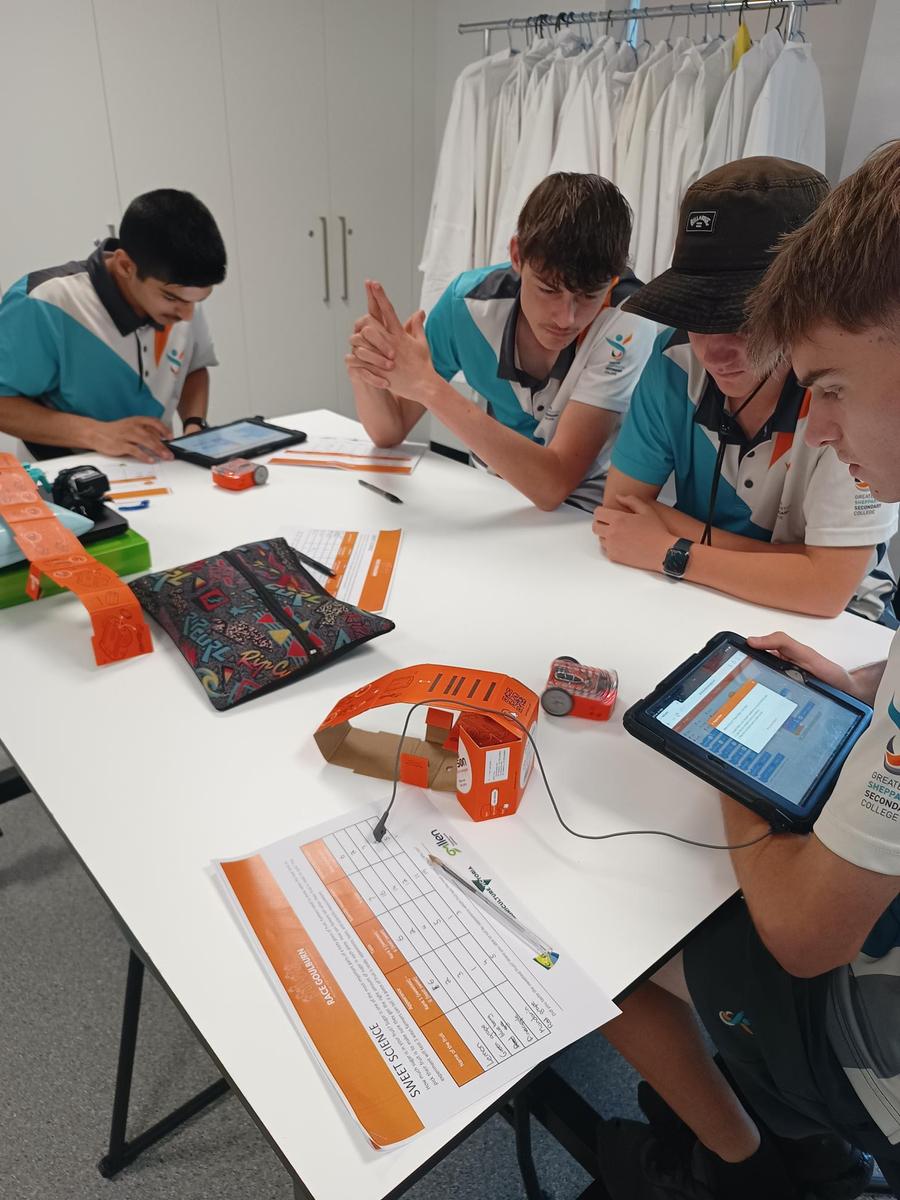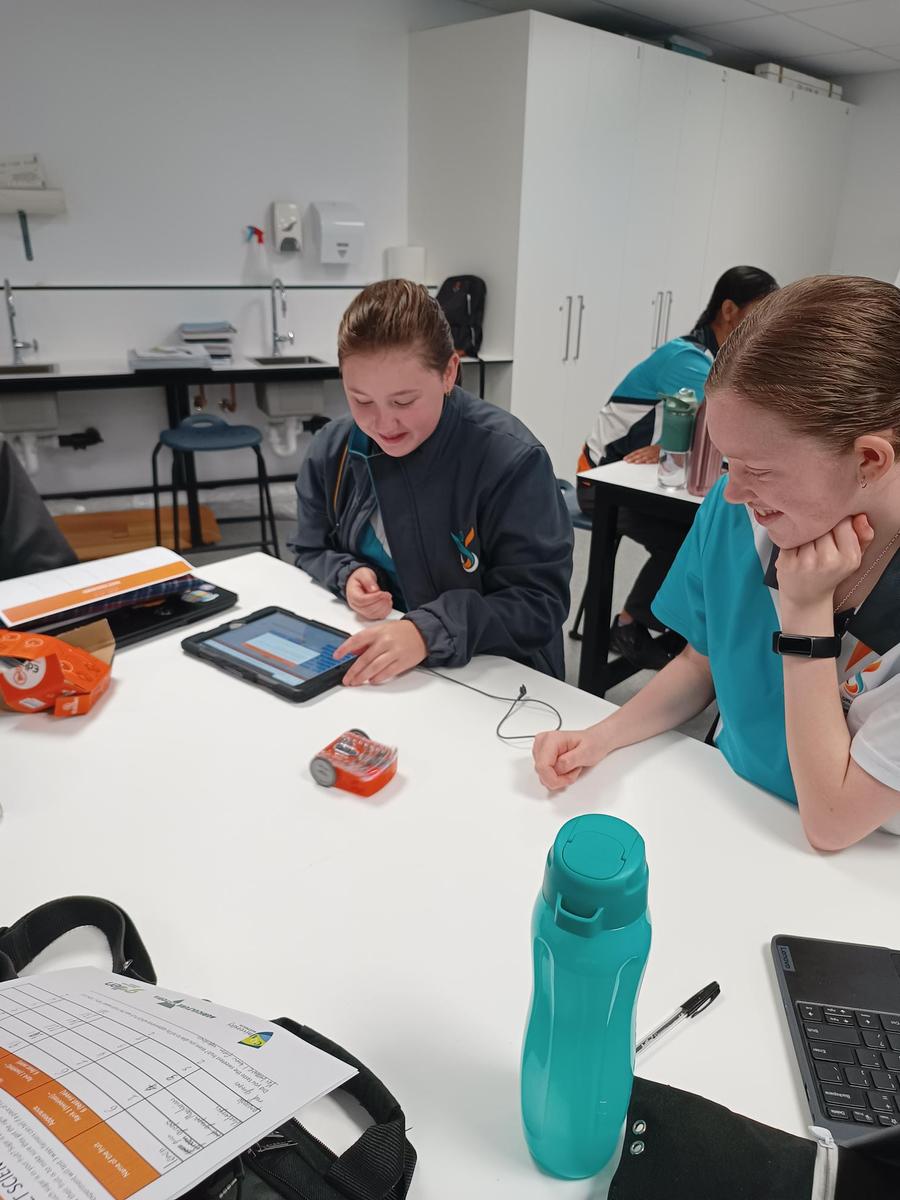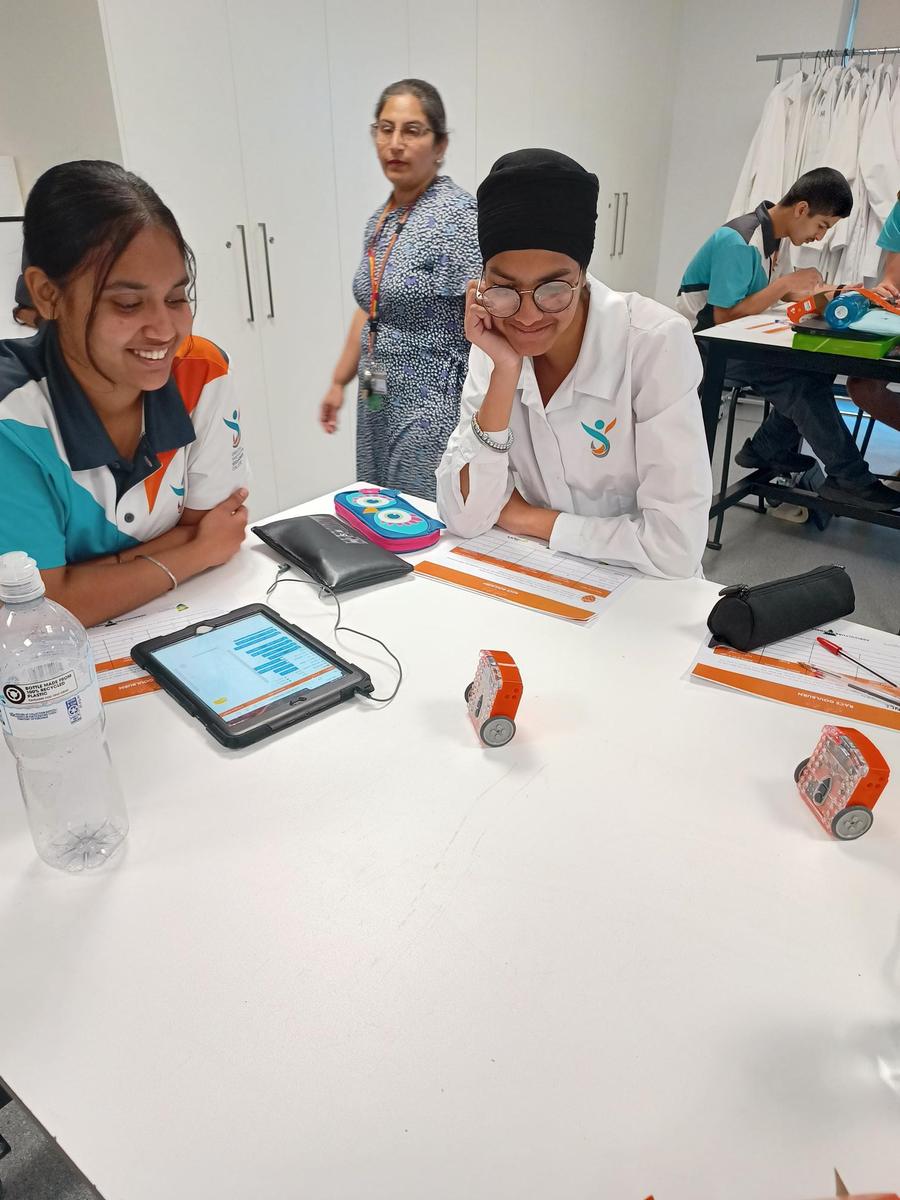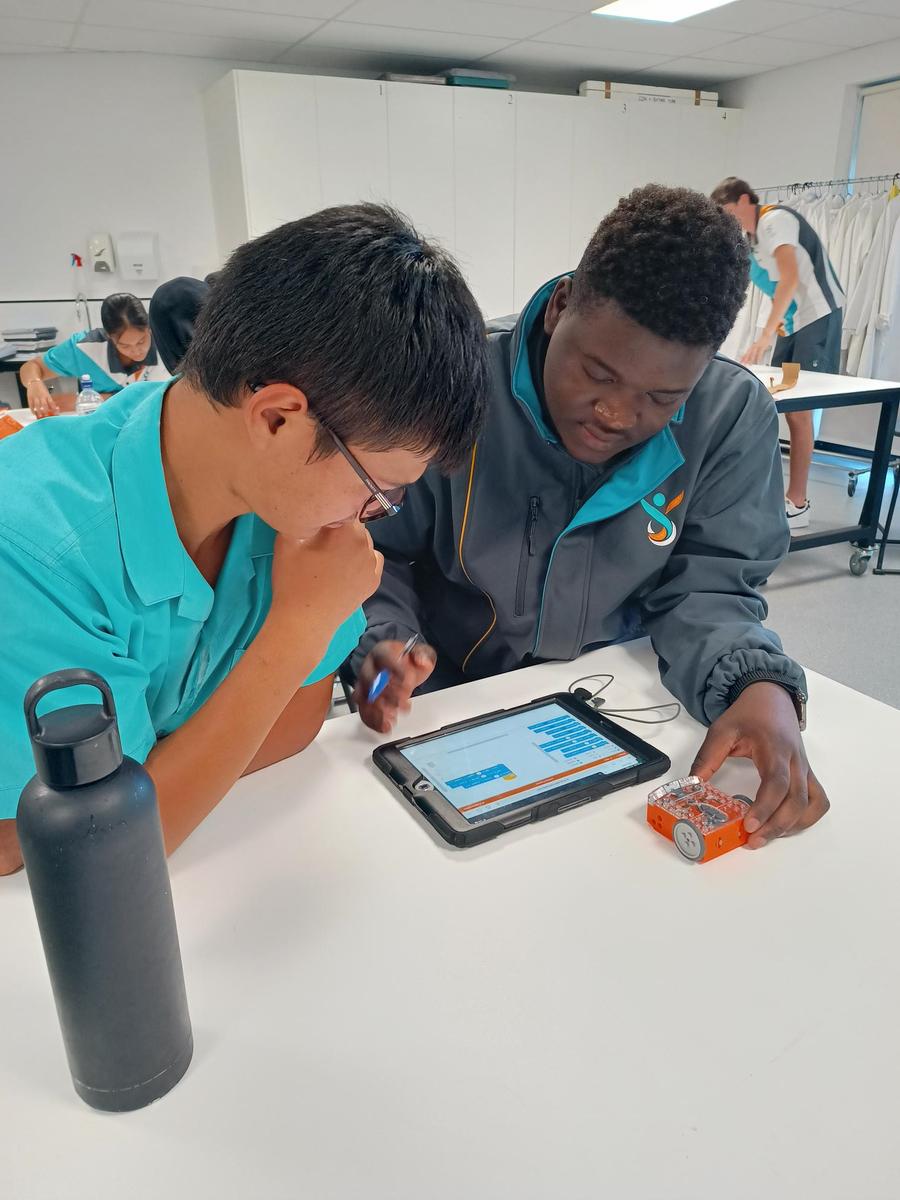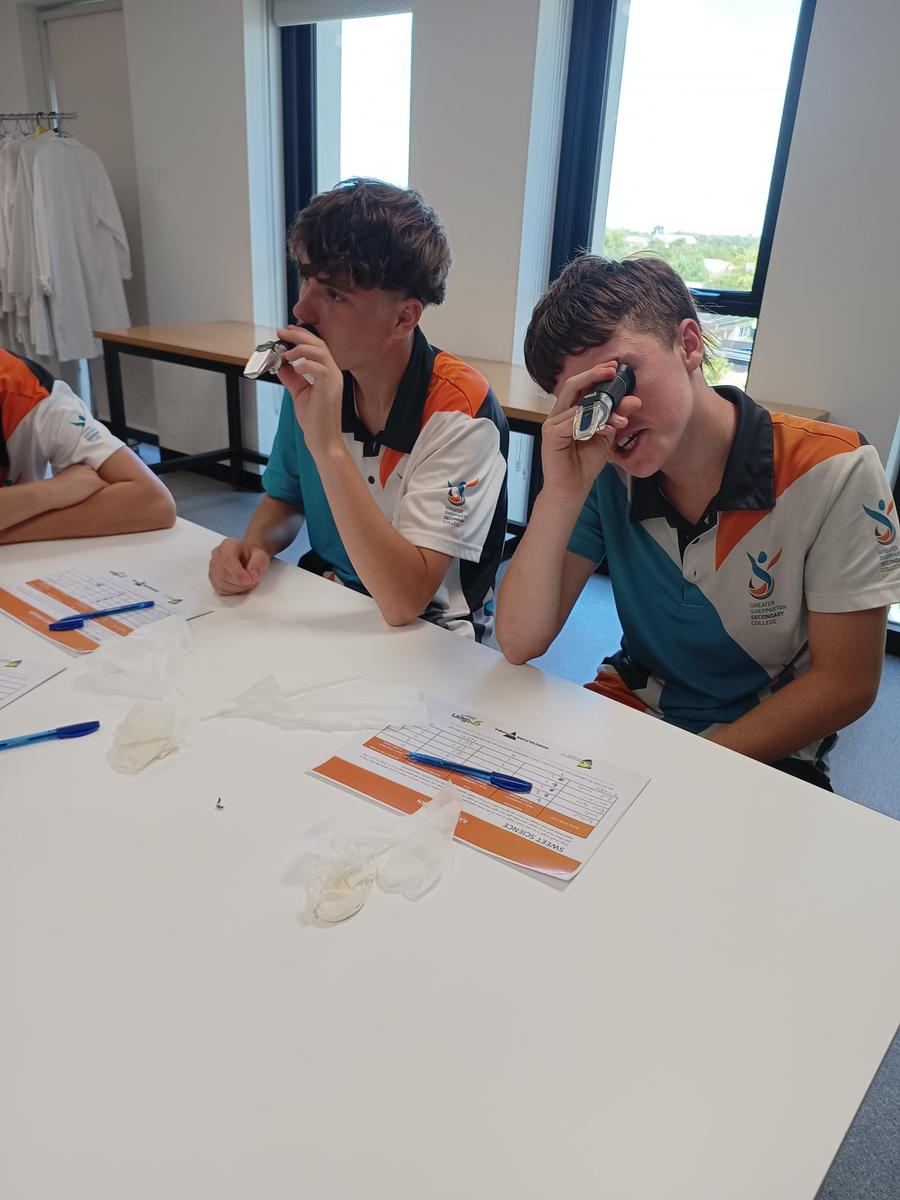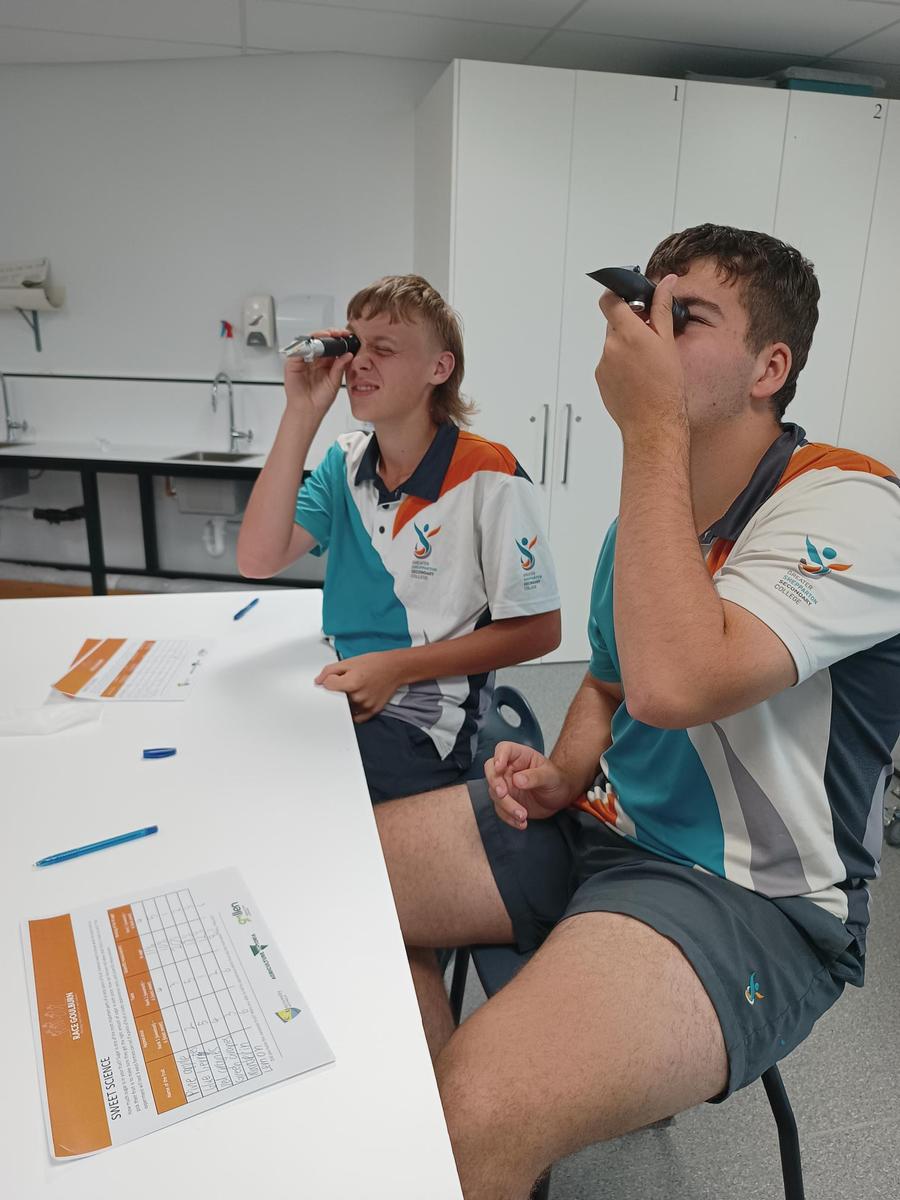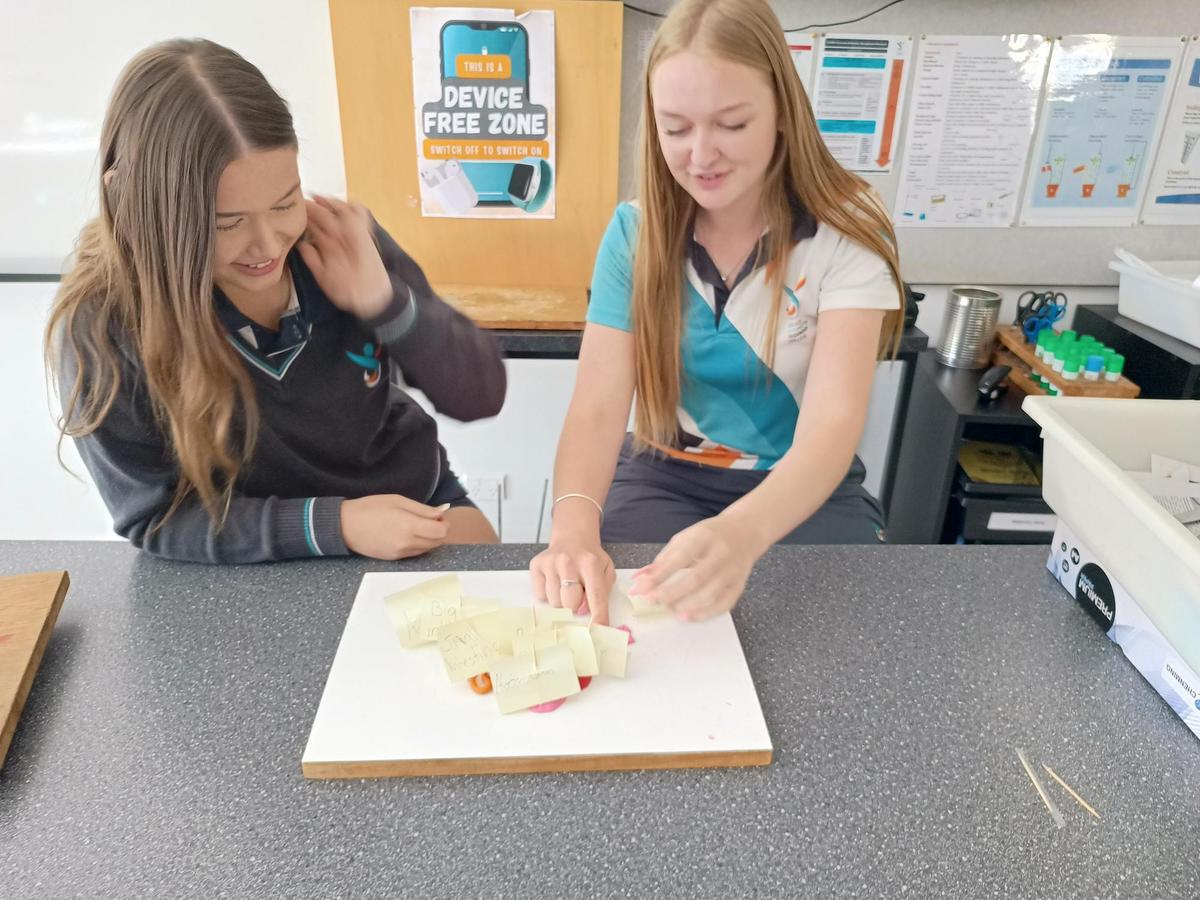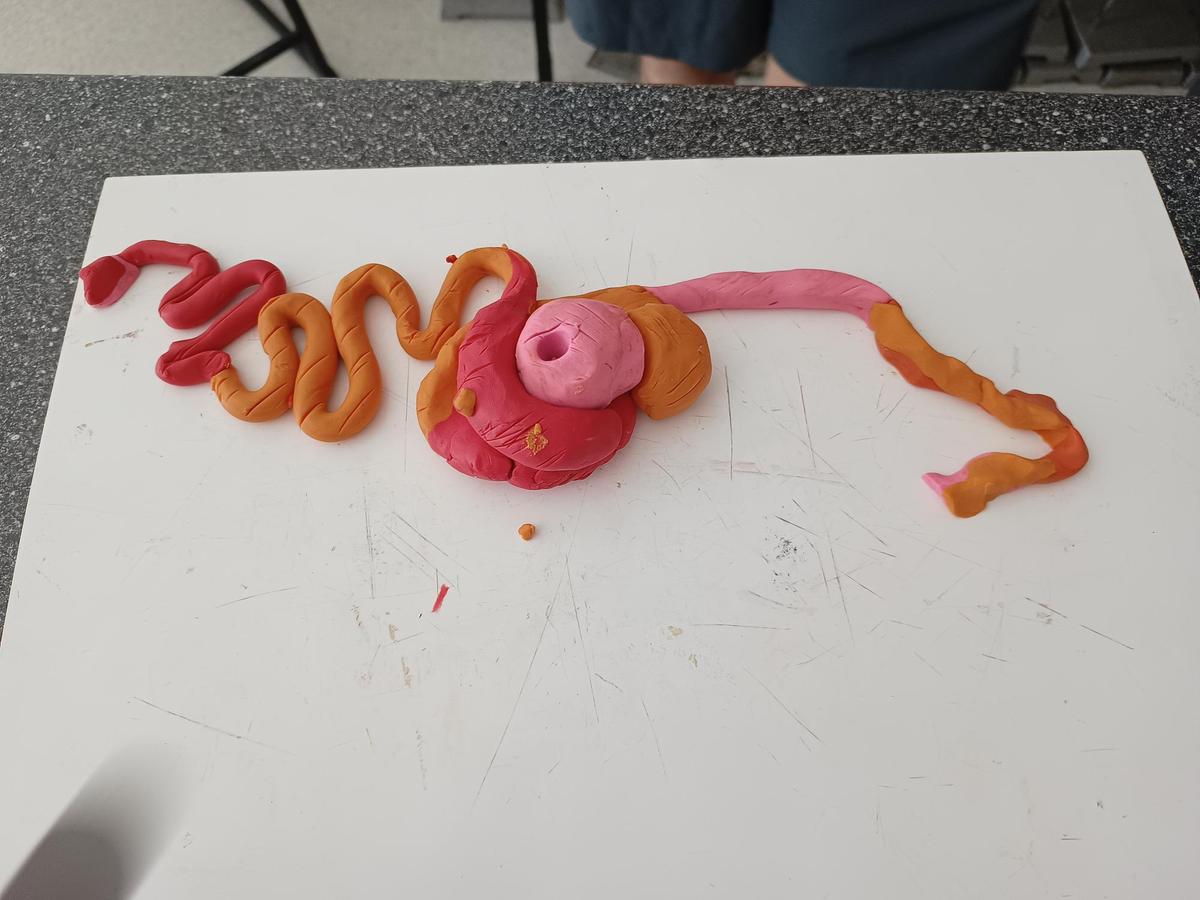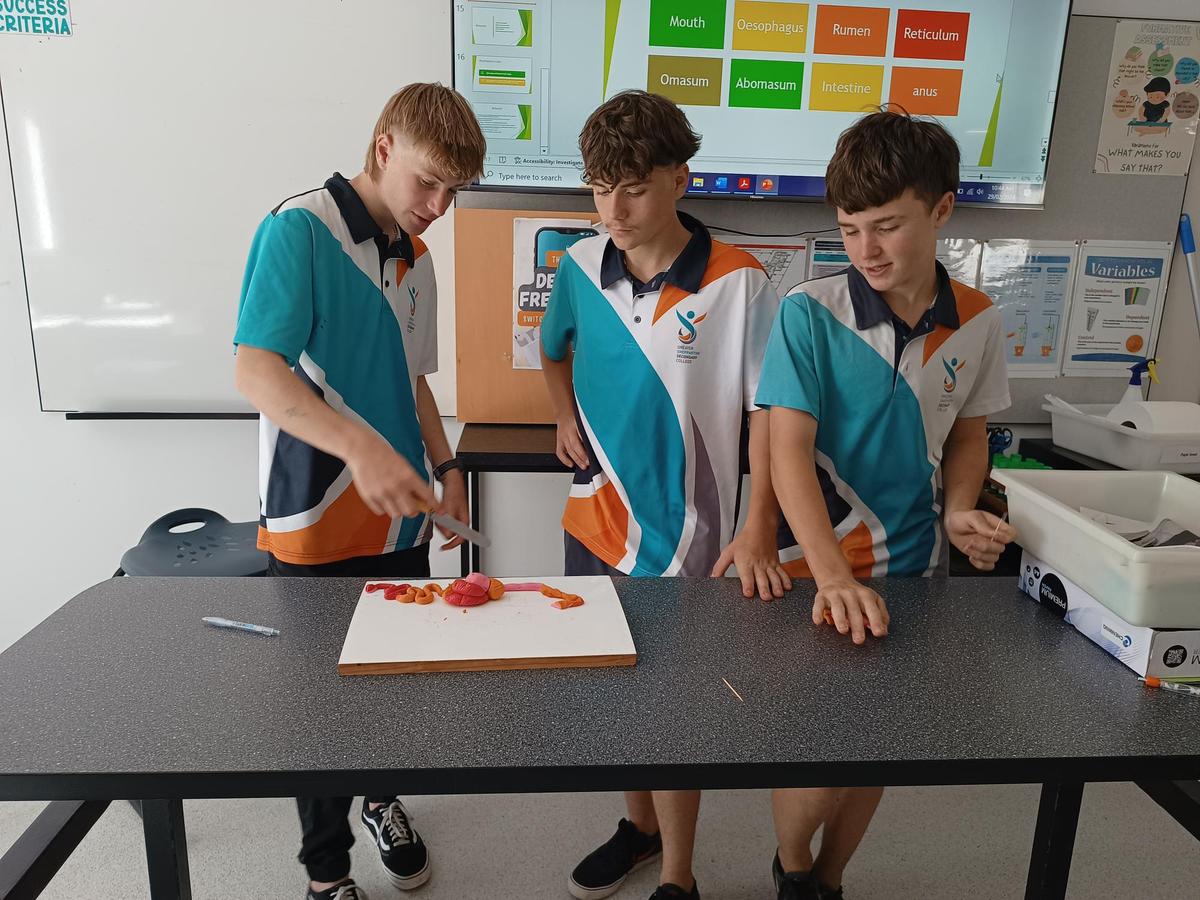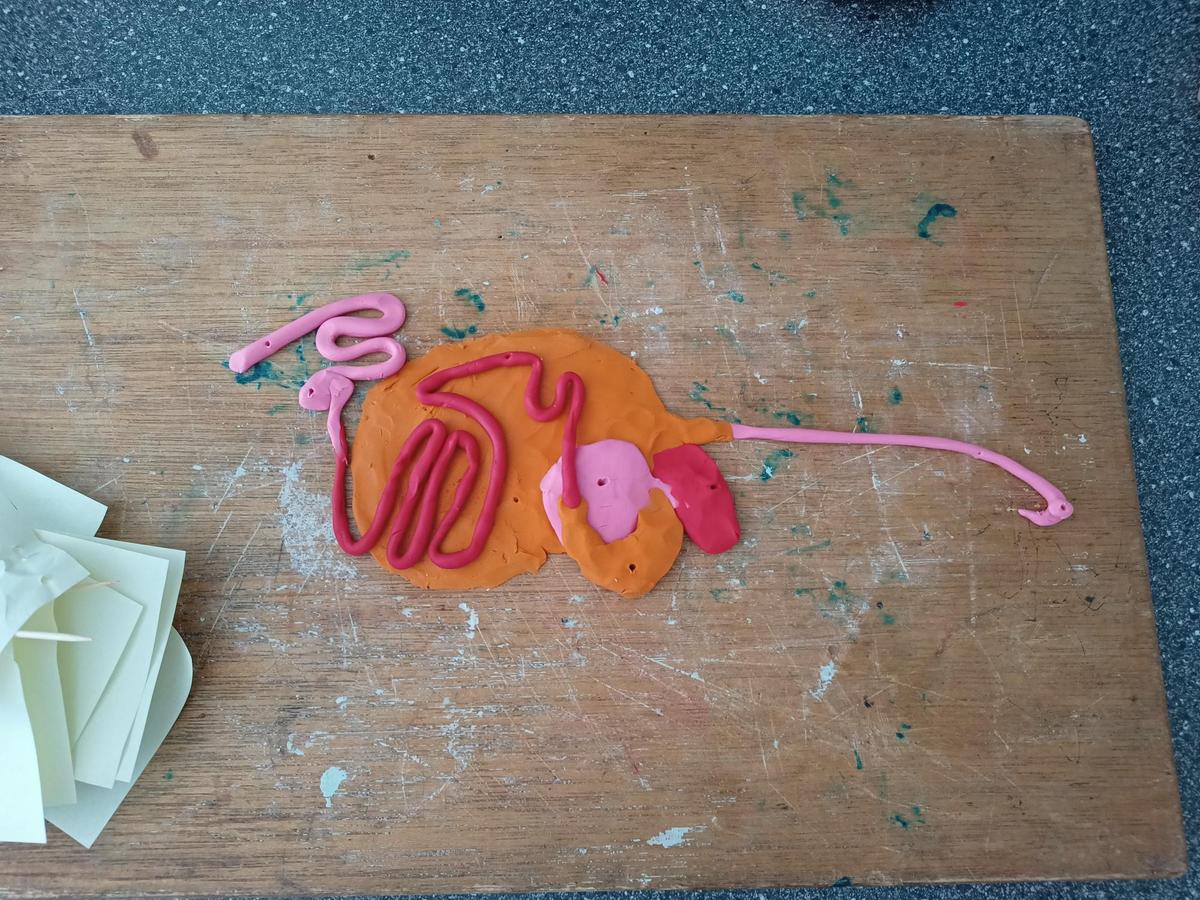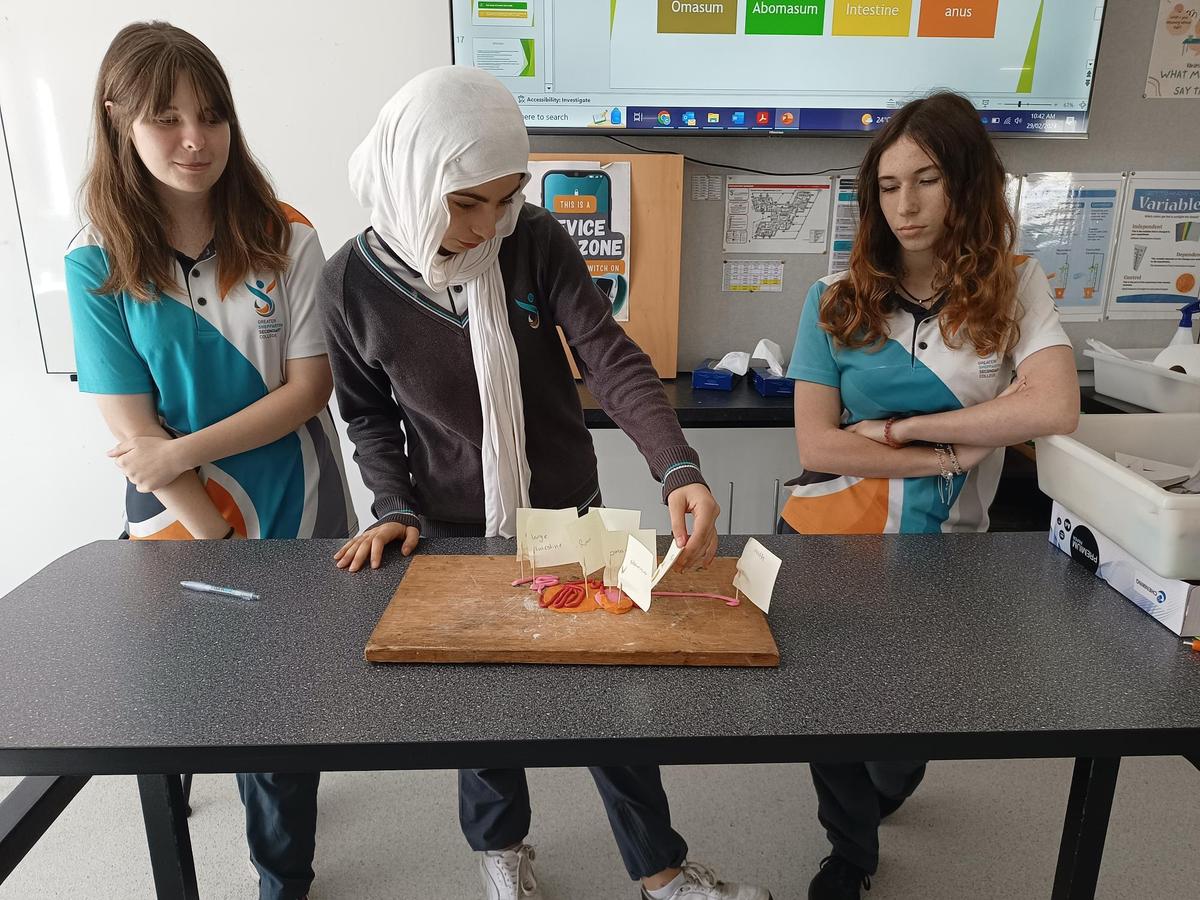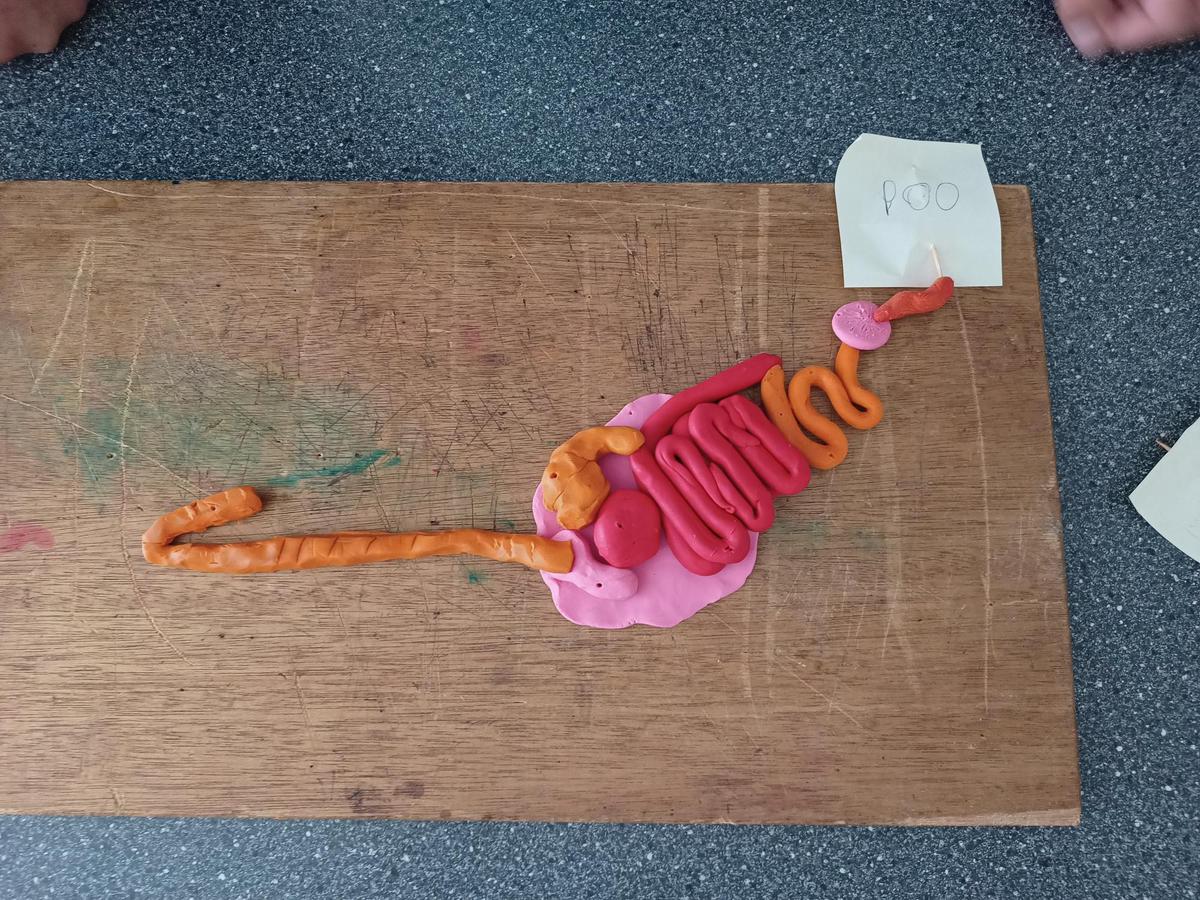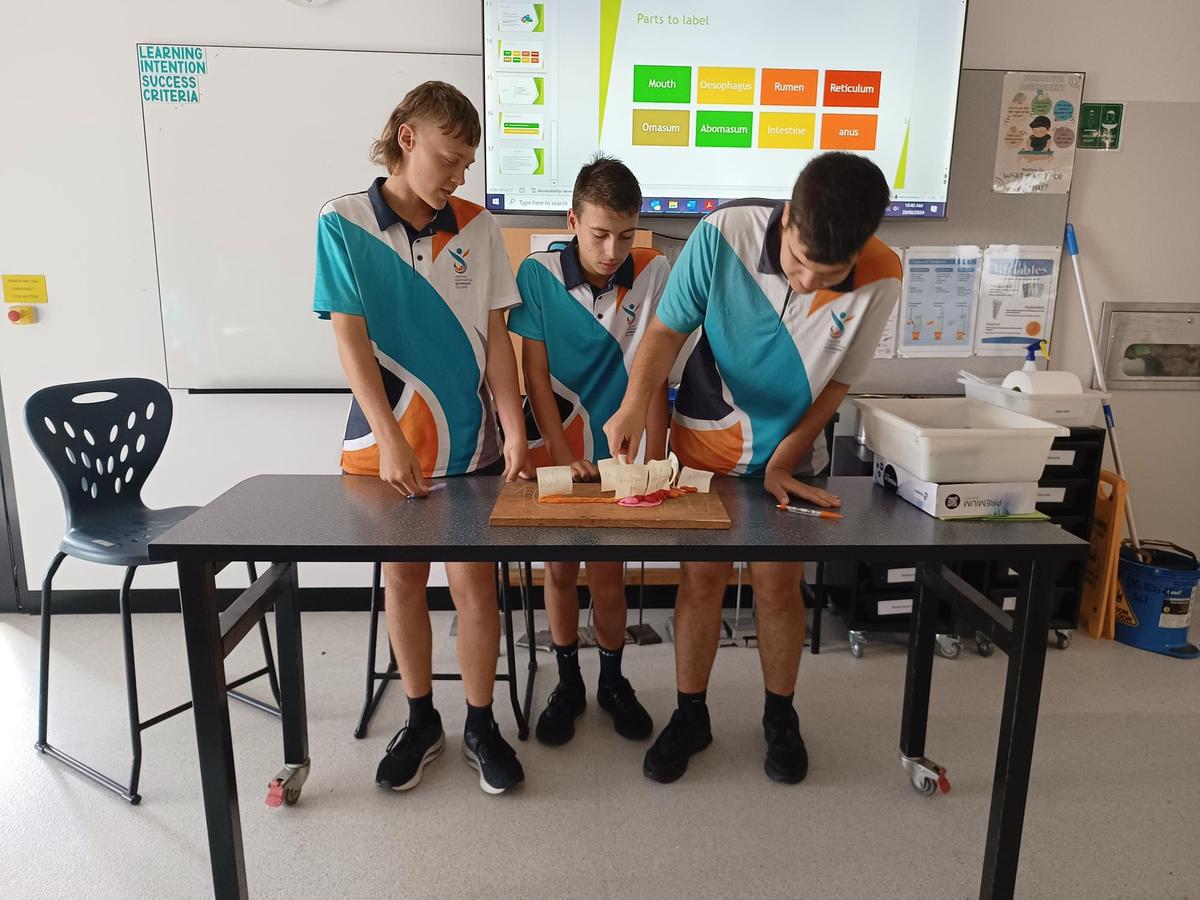Agriculture News

2024 has got off to a flying start with the Agriculture program, with classes at Years 9, 10, 11 and 12.
Year 9 Sense of Humus
Students have been learning how agricultural methods have changed over time, from English farming to the efforts of the European Settlers in Australia, Industrial Agriculture and the Green Revolution, and now to the contemporary approaches that come under the umbrella of Regenerative Agriculture. In doing so, students learnt to identify the many species of fodder plants growing in the garden beds as part of the Summer Cover Crop over the holidays. They sorted monocots from dicots before turning them into green manure and compost. They added more sheep manure to the garden beds followed by mulch, and new vegetables will be plan soon.
RACE Goulburn
After a successful 2023 visit, representatives from Central Queensland University, once again visited GSSC as part of the RACE Goulburn initiative funded by Goulburn Murray LLEN.
Students from our Years 9, 10 and 11 Agriculture classes and the Year 11 Chemistry class took part in two activities including working with Edison robots to work a ‘field’ (desk) using coding techniques. This replicated the autonomous tractors and other crop machinery that is used in the industry.
The second activity involved students testing a variety of fruits and soft drinks using a refractometer. This device measures the sugar or Brix levels in the substance through light refraction.
Farmers use these instruments to test the ripeness of fruit in order to determine optimal harvest time. Graziers also use refractometers to test the sugar level of pasture species, an indicator of soil health and pest resistance.
A fantastic experience all round for our GSSC Ag and Chem students!
Year 10 Agriculture
The inaugural Year 10 Agriculture students have completed their AgCards in Safe Farming and Wool Harvesting, and invested in $10,000 (virtual) of crops and livestock as part of the Invest Inya Farmer agribusiness initiative. They will monitor updates from their farmers throughout the semester to see how their investments are travelling.
Students have begun the main component of the subject, the Victorian Schools Merino Wether Challenge, learning all things sheep and wool in a hands-on and classroom-based curriculum from Australian Wool Innovation (AWI). Students created models of the ruminant digestive system and have learnt about Low Stress Stock Handling and the natural behaviour of sheep.
Over the coming weeks they will learn about health, nutrition, breeds and types of wool, carcass attributes, genetics and careers, in addition to feeding, husbandry, handling and parading skills.

